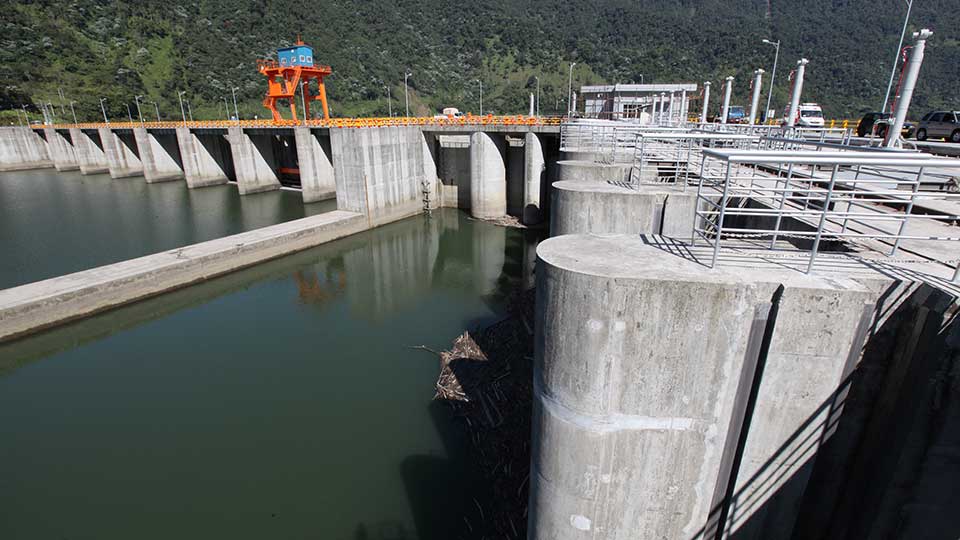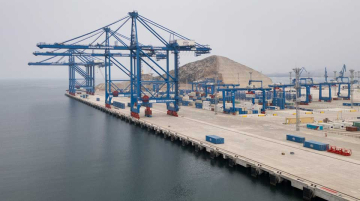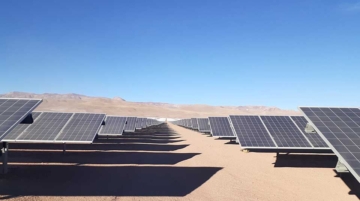
By Julie Radomski
The hydroelectric megaproject Coca Codo Sinclair is among Latin America’s most controversial Chinese-financed and constructed infrastructure projects. Although officially inaugurated in 2016, the dam has not yet been formally handed over to the Ecuadorian government — but this may soon change. Over the coming year, Ecuadorian officials expect to receive Coca Codo from its contractor, Sinohydro Corporation.
The complexity of this handover and the negotiations surrounding it highlight the agency of Southern countries like Ecuador in shaping the outcomes of Chinese projects, even the most problematic among them. Rather than passive recipients of flawed projects, host countries deploy diverse strategies to pursue their own development goals, in this case centering on energy resilience.
Coca Codo Sinclair generates approximately 20-30 percent of Ecuador’s electricity consumption on a daily basis and has done so for the past eight years, despite not being officially turned over. The main impediment to Coca Codo Sinclair’s reception is an ongoing international arbitration case — underway since May 2021 at the International Court of Commerce (ICC) in Santiago, Chile — over defects in its powerhouse distributor pipes. The micro-fissures present in these snail-shaped pipes, which channel water to the project’s turbines, are the most severe among a series of construction flaws being contested by the Ecuadorian government in the ICC case.

Despite repeated attempts at repairing the fissures over the past decade, they have persistently recurred. Separately, the dam’s sediment removal system has also proven ineffective, necessitating repeated stoppages to dredge accumulated sediments in the dam’s reservoir. As a result of these defects, there has been consistent public pressure on the Ecuadorian government not to accept the project without holding Sinohydro duly accountable.
However, according to a recent interview with Ecuador’s Ministry of Energy and Mines, an ICC decision could be reached as soon as the end of March. Whatever Sinohydro’s liability result, the decision is considered binding. Moreover, the end of this legal proceeding will open up the pathway for the company to fully turn over the project to the Ecuadorian state electricity company.
Both Ecuadorian and Chinese officials are eager for this long and contentious process to be resolved. Ecuador underwent a severe energy shortage last year, triggered by a record-setting drought that reduced the electricity production of its hydropower projects (the country relies on hydropower for approximately 70 percent of its electricity). As a result, Ecuadorian officials are eager to break ground on new power generation projects to avoid future scarcity and demonstrate their dedication to preventing this type of catastrophe from occurring again.
Chinese official development finance could be an important source of financing for these projects, especially given lending patterns and policy commitments focusing on green energy, namely smaller hydropower and solar, in recent years. However, a deal with a financier such as the Export-Import Bank of China is unlikely to be feasible until Coca Codo Sinclair (itself financed by the Export-Import Bank of China) is wrapped up. In other words, Ecuadorian officials have a strong incentive to resolve this controversy and move on with new forms of China-Ecuador energy cooperation.

Sinohydro, for its part, is keen to close out a project for which it has been obligated to dedicate on-the-ground staff and resources for years after it originally anticipated. The company was contracted under a “turnkey” (or llave en mano) Engineering, Procurement, and Construction (EPC) contract, meaning it expected to hand over the project after construction was completed. Moreover, in light of its high-profile issues of corruption, devastating environmental risk, as well as construction defects, Coca-Cola Sinclair has threatened the company’s international reputation in no small measure.
To the list of complexities, also add the possibility that Coca Codo may be concessioned to Sinohydro or another private company for its continued operations after the official handover. Such an arrangement has been debated several times over the years and, according to interviews, is still on the table. Depending on the terms of the agreement, the concession could shield the Ecuadorian state from bearing the risk posed by severe erosion and sediment accumulation that threaten the continued operations of the dam.
As Ecuador and Sinohydro approach the final stages of this protracted dispute, the resolution will carry lasting implications. For Ecuador, the outcome will not only influence its ability to attract future investment in energy infrastructure but also the stability of its current electricity supply. Whether through refusal to accept construction flaws and environmental risk, international arbitration, or new terms under private concessions, Ecuadorian authorities assert their agency in managing foreign-financed and -constructed megaprojects. The fate of Coca Codo Sinclair will thus stand as a testament to the power of sustained host country pressure in shaping the accountability and future viability of large-scale Chinese projects.
Julie Radomski is a Global China Post-doctoral Research Fellow at the Boston University Global Development Policy Center. Her research concerns the politics of development in Latin America and the geopolitical, ecological and historical dynamics of Global China in the region.





